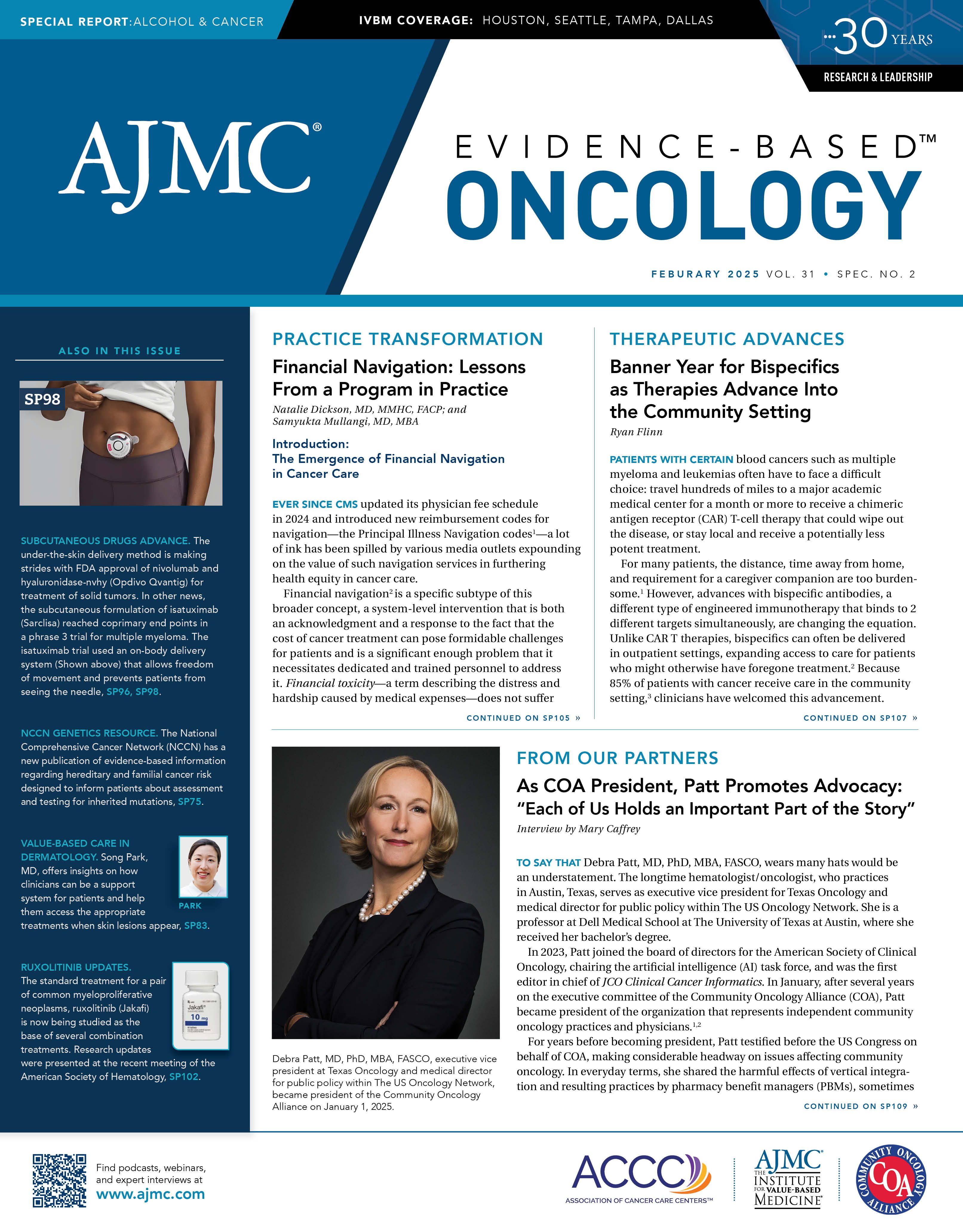- Center on Health Equity & Access
- Clinical
- Health Care Cost
- Health Care Delivery
- Insurance
- Policy
- Technology
- Value-Based Care
Clinical Trials Must Represent Those Who Will Receive Therapy
In the November Evidence-Based Oncology article “As Myeloma Trials Tackle Frontline Treatment, Where Are the Black Patients?” the authors discussed results of the phase 3 IMROZ and PERSEUS trials that led to the recent FDA approval of isatuximab (Sarclisa) and daratumumab (Darzalex) in combination with the triplet of bortezomib (Velcade), lenalidomide (Revlimid) and dexamethasone for first-line multiple myeloma therapy. Although both trials represented significant advances in the treatment of multiple myeloma, they highlighted an ongoing problem with clinical trials: lack of diversity.
Black patients made up only 0.9% of patients in IMROZ and 1.3% of patients in PERSEUS, even though 20% of patients with newly diagnosed myeloma are Black and 14% of individuals in the US are Black.
Underrepresentation of minority populations in clinical trials is not limited to just those with multiple myeloma. Results of a 2020 FDA Center for Drug Evaluation and Research study comprised of 32,000 patients in clinical trials revealed alarming gaps, as follows:
- Non-Hispanic Whites represented 75% of participants but only 59% of the US population.
- Hispanics were underrepresented at 11% of participants, but 19% of the population.
- Blacks or African Americans were underrepresented at 8% of participants, but 14% of the population.
At Evolent, we develop clinical pathways that guide physicians to the best options for specific clinical scenarios. To determine these pathways, we look at the clinical trials leading to the FDA approval of the alternatives, comparing first efficacy, then toxicity, and as a last step, cost. When clinical trials are not representative of the patients who will be using the drugs, our task becomes more difficult. In addition to race, there is lower participation in clinical trials of patients of lower socioeconomic status as well as those who are older or who have more comorbidities. This can result from inaccessible trial locations and strict exclusion criteria.
Clinical trial populations are thus more likely to be younger, healthier, and less diverse than the general population. This may explain the disproportionate results seen between clinical trial participants and real-world patients. Clinical trials measure the efficacy of a treatment under ideal conditions, whereas real-world data reflects the effectiveness of the treatment in everyday clinical practice. Real-world patients often have a wider range of health conditions and may not adhere to treatment protocols as strictly as trial participants. Study results have shown that real-world patients with certain cancers, such as multiple myeloma, often experience inferior progression-free survival compared with those in clinical trials. For example, real-world patients with multiple myeloma had 44% worse progression-free survival compared with clinical trial participants.
Evolent is taking several steps to address this issue. When making pathway decisions in conjunction with our scientific advisory board, we conduct a health equity assessment of every clinical trial by asking 2 questions: “Does the study include patients who are representative of the population in need?” and “Are there equal outcomes for all patient subgroups?” More weight is given to clinical trials whose participants adequately represent the populations we will be treating. Additionally, Evolent strongly encourages participation in clinical trials by rewarding providers for enrolling patients in them.
There are several other steps that can be taken more broadly by the health care industry. These include the following:
- Decentralized trials with more locations to increase access
- Use of artificial intelligence to match patients to clinical trial requirements
- Fewer exclusions with broader eligibility requirements
- Incentives for manufacturers to increase diversity in trials, such as expedited reviews, fee waivers, and extended exclusivity
- Use of community champions (nonbiased) and navigators to educate patients regarding clinical trials.
Greater diversity in clinical trials will lead to a better understanding of how these drugs work and also allow us to get the best possible therapy to each patient.
Andrew Hertler, MD, is senior adviser and chief medical officer emeritus for Evolent.

